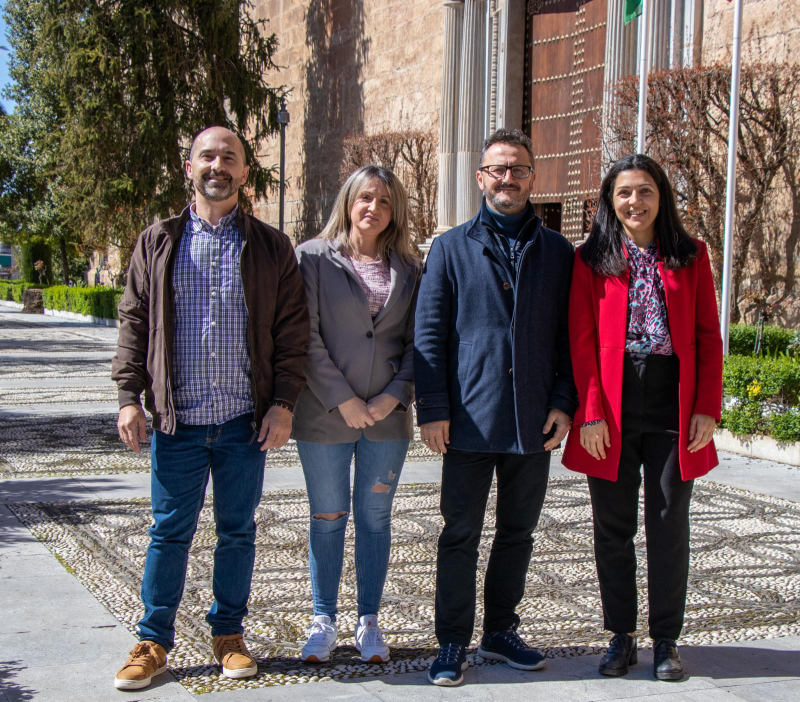
A study by the University of Granada (UGR) shows that users understand advertisements better and with less effort when congruent emojis and messages are used.
The findings also suggest a shift in the preferences of potential consumers towards more nature-based tourism.
UGR researchers from the Department of Marketing and Market Research have carried out a pioneering study showing how the use of congruent messages and emojis when promoting tourist destinations on social media leads to greater user attention. This strategy helps users to process the information effectively and reduces their cognitive effort. More specifically, the use of emojis in online messages about tourism destinations facilitates processing and reduces ambiguity, especially when the recipients encounter content with low levels of congruence.
The main objective of the research, recently published in the prestigious Journal of Destination Marketing & Management, was to understand how messages posted on social media by destination management organisations (DMOs) and subsequent comments from other users (electronic word-of-mouth or eWOM) influence the perception and behaviour of potential tourists.
The study was carried out at the UGR’s Mind, Brain and Behaviour Research Centre (CIMCYC) and funded through the Andalusian Programme for R&D (grant number P20-01021). It consisted of an experiment using eye-tracking techniques on 60 users of the social network Facebook. These individuals underwent a series of experimental procedures in which the researchers manipulated the level of congruence between the messages of those posting and the users, the use or omission of emojis in the content, and the way in which the tourist destination was positioned in the media (natural environment, gastronomy, hotels, sun and beach).
The UGR research team, which includes Beatriz García Carrión, Francisco Muñoz Leiva, Salvador del Barrio García and Lucia Porcu, point out that the study “clearly illustrates the benefits in terms of the effectiveness of using congruent messages in marketing communications in general, and especially in digital communications via social media, as well as how the use of emojis contributes to improving users’ information processing, increasing their attention and reducing the cognitive effort involved. Moreover, congruent messages not only facilitate users’ information processing, but also improve their affective evaluation — a crucial aspect when it comes to making a decision on a tourist destination.”
The UGR study yields several key findings for tourism management in relation to communication approaches aimed at social media users. To begin with, the research shows how important it is for tourism managers to maintain a high level of congruence in the information they convey through social media. As the researchers explain: “This involves systematically reviewing and managing comments across all communication channels to identify any comments that do not align with the destination’s desired positioning, with a view to mitigating potential negative effects.”
Pictorial representations (emojis) significantly enhance the overall comprehension of the information. However, the study did not find a significant impact of emojis on the formation of affective evaluations. The UGR study emphasises that tourism managers should focus on information related to the destination’s gastronomy and natural environment, rather than more conventional aspects such as sun and beach facilities or hotel offerings, as the former attract more attention and are perceived more favourably, even under low levels of congruence.
The research findings suggest a shift in the preferences of potential consumers towards more nature-based tourism. Therefore, tourism managers should place greater emphasis on communicating aspects related to the environment and sustainability of the tourist destination in their social media posts, thereby reaping benefits in terms of visual attention and affective evaluations.
Bibliographic reference:
García-Carrión, B., Muñoz-Leiva, F., Del Barrio-García, S., & Porcu, L. (2024). The effect of online message congruence, destination-positioning, and emojis on users’ cognitive effort and affective evaluation. Journal of Destination Marketing & Management, 31 (March), 100842. Full article available online at https://www.sciencedirect.com/science/article/pii/S2212571X23000811
Contact details:
Salvador del Barrio García
Department of Marketing and Market Research
Faculty of Economics and Business
University of Granada
Email: @email
Translated version: This text has been translated into English by the Language Services Unit (Vice-Rectorate for Internationalization) of the University of Granada.